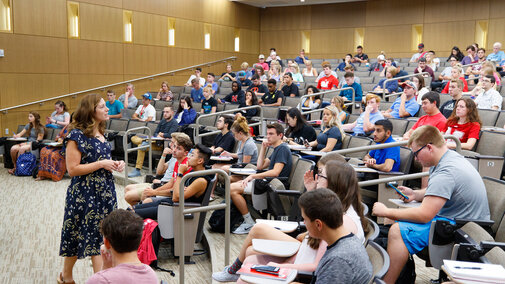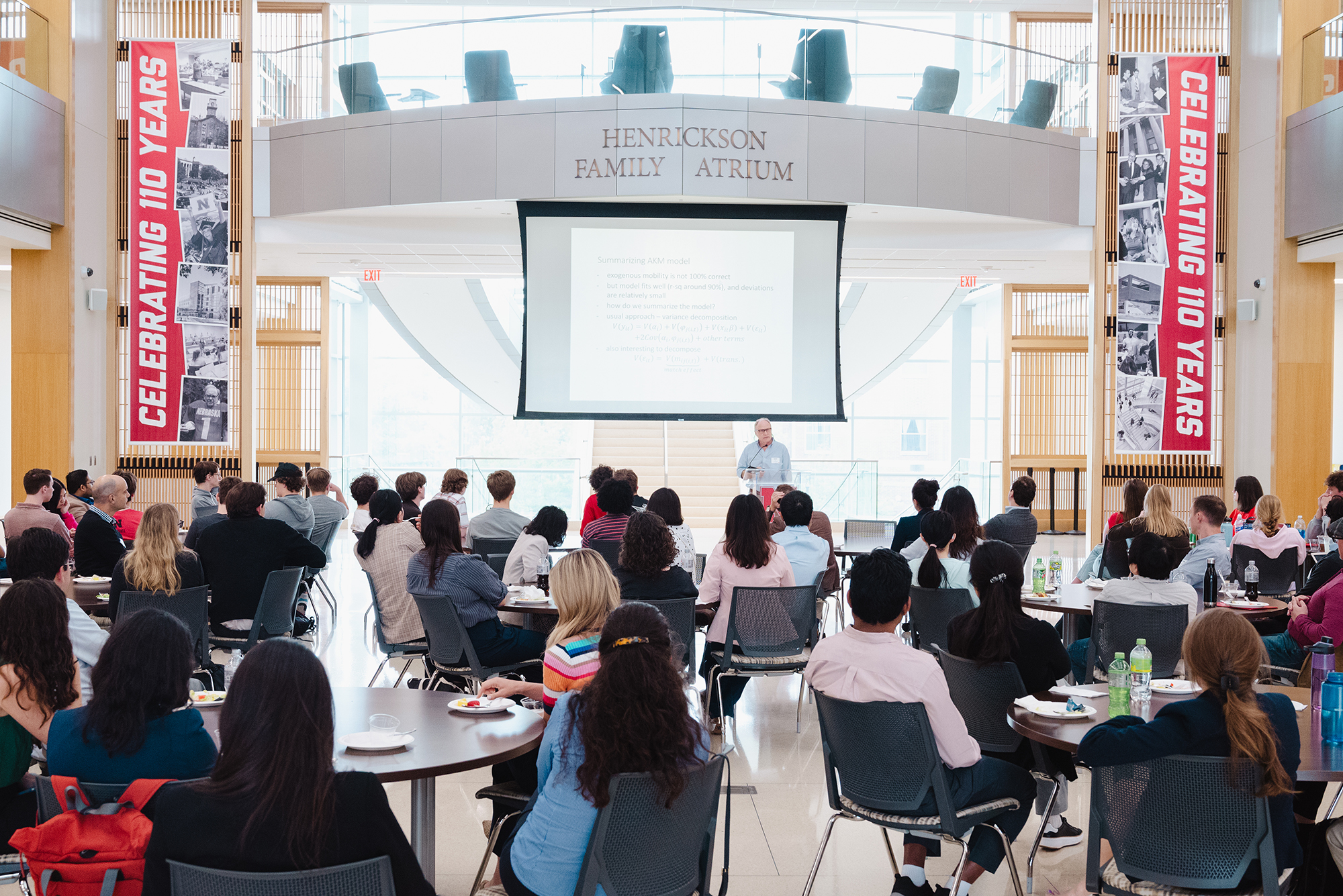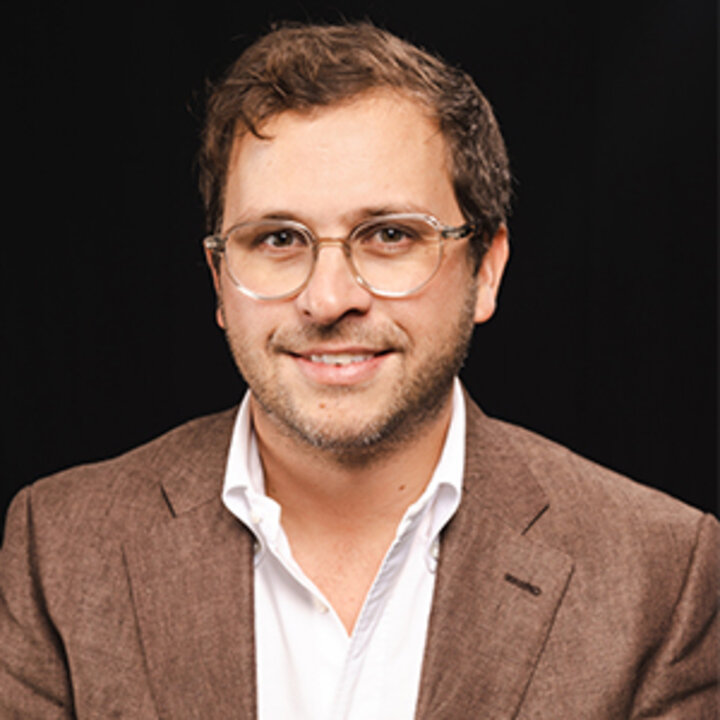Nebraska Labor Summit
The University of Nebraska Department of Economics will host the 2026 Nebraska Labor Summit at the College of Business in Lincoln, Nebraska, on Friday, March 13. The summit will focus on empirical research in labor economics and closely related fields.
Friday, March 13
University of Nebraska-Lincoln
Howard L. Hawks Hall, 730 N. 14th Street, Lincoln, Nebraska
2026 Keynote Speaker
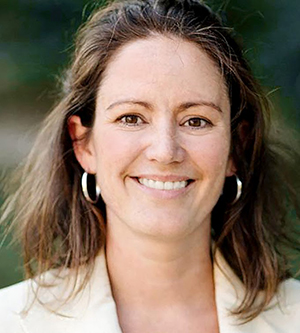
Martha Bailey
Professor of Economics, UCLA
Martha Bailey is a Professor of Economics and Director of the California Center for Population Research at UCLA. Her research focuses on issues in labor economics, demography and health in the United States, within the long-run perspective of economic history. She is an expert on the economic consequences of War on Poverty programs and directs the LIFE-M project, which links millions of vital records with census data for the early 20th century U.S., and the M-CARE study, which evaluates how more affordable contraception affects the lives of Americans. In 2022, she was awarded the Carolyn Shaw Bell Award for furthering the status of women in the economics profession. She has served as an editor of the Journal of Labor Economics and a member of the editorial board of the American Economic Review.
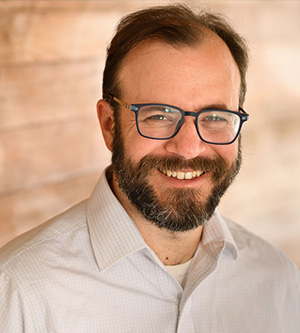
Alexandre Mas
Professor of Economics, University of California, Berkeley
Alexandre Mas is a Professor of Economics at the Haas School of Business at the University of California, Berkeley. His research on the economics of the labor market has focused on alternative work arrangements, productivity spillovers in the workplace, fairness considerations and norms around pay setting, pay transparency, unemployment, unions, and the effects of credit market disruptions. He served as associate director for economic policy and chief economist at the U.S. Office of Management and Budget in the Executive Office of the President from 2010-2011, and as chief economist at the U.S. Department of Labor from 2009-2010. His awards include the IZA Young Labor Economist Award and Princeton University’s Albert Rees Prize in 2009. He is also co-director of the National Bureau of Economic Research Labor Studies program.
2026 Agenda
Program Committee: Rebecca Jack, Daniel Tannenbaum, Brenden Timpe
Thursday, March 12 | |
| 7-9 p.m. | Happy Hour (location TBD) |
Friday, March 13 | |
| 8 a.m. | Breakfast Served and Check-In UNL College of Business | Howard L. Hawks Hall (HLH) | 730 N. 14th Street | Lincoln, Nebraska Names badges are available |
| 8:20 a.m. | Welcome (HLH 231)
|
| 8:30 a.m. | Keynote Address (HLH 231)
|
| 9:15 a.m. | Break |
| 9:45 a.m. | Session 1 (HLH 231)
9-minute "flash" talks
|
| 11:45 a.m. | Lunch (HLH, 2nd floor) |
| 12:15 p.m. | Keynote Address (HLH Atrium, 2nd floor)
|
| 1 p.m. | Break |
| 1:30 p.m. | Session 2 (HLH 231) 30-minute presentations
9-minuted "flash" talks
|
| 3:30 p.m. | Break |
| 4 p.m. | Session 3 (HLH 231) 30-minute presentations
9-minute "flash" talks
|
| 5:30 p.m. | Closing, Depart for Reception at the Sheldon Museum of Art UNL Campus | 12th and R Streets | Lincoln, Nebraska Heavy hors d'oeuvres | Hosted bar with beer and wine |
Previous Agendas
2023 Agenda
Thursday, April 13 | |
| 7-9 p.m. | Pre-conference Reception Bin 105 | 105 N 18th Street | Lincoln, Nebraska |
Friday, April 14 | |
| 8 a.m. | Breakfast and Check-In (UNL College of Business | Howard L. Hawks Hall | 730 N. 14th Street | Lincoln, Nebraska) |
| 8:30 a.m. | Welcome HLH 018 |
| 8:40 a.m. | Keynote Address HLH 018 Anna Aizer (Brown University), “Health and the Intergenerational Transmission of Economic Status” Anna Aizer is the Maurice R. Greenberg Professor of Economics at Brown University. She is a labor and health economist with interests in the area of child health and well-being. She is also co-director of the NBER's program on Children and the Editor in Chief of the Journal of Human Resources. Her current work considers the mechanisms behind the intergenerational transmission of poverty. In particular, she focuses on the roles played by health insurance and access to medical care, domestic violence, exposure to environmental toxins, the role of stress, discrimination in the labor market, job training and poor children's greater interaction with the juvenile justice system in explaining why the children of poor mothers are more likely to grow up to be poor themselves. |
| 9:30 a.m. | Break |
| 9:45 a.m. | Session I: HLH 018
8-Minute "Flash" Talks
|
| 11:45 a.m. | Lunch Box lunches in Atrium |
| 12:10 p.m. | Keynote Address In Atrium Christopher Walters (University of California, Berkeley), “Using Correspondence Experiments to Measure Employer-Specific Discrimination” Christopher Walters is an Associate Professor of Economics at the University of California, Berkeley. He is a Research Associate at the National Bureau of Economic Research, a Faculty Affiliate at the MIT School Effectiveness and Inequality Initiative (SEII), an affiliate of J-PAL North America, and a co-editor of the American Economic Journal: Applied Economics and associate editor of the Journal of Political Economy. His research focuses on the topics in labor economics and the economics of education, including early childhood programs, school effectiveness, and labor market discrimination. |
| 1 p.m. | Break |
| 1:15 p.m. | Session II: HLH 018
8-Minute "Flash" Talks
|
| 3:15 p.m. | Break |
| 3:30 p.m. | Session III: HLH 018
8-Minute "Flash" Talks
|
| 5:30 p.m. | Conclude, Depart for Reception at the Sheldon Museum of Art UNL Campus | 12th and R Streets | Lincoln, Nebraska Heavy hors d’oeuvres | Hosted bar with beer and wine |
2024 Agenda
Thursday, May 9 | |
| 7-9 p.m. | Pre-conference Happy Hour Bin 105, 105 N 8th Street #100 |
Friday, May 10 | |
| 8 a.m. | Breakfast and Check-In (UNL College of Business | Howard L. Hawks Hall | 730 N. 14th Street | Lincoln, Nebraska) |
| 8:25 a.m. | Welcome HLH 202 |
| 8:30 a.m. | Session 1 HLH 202
9-minute “flash” talks
|
| 10:20 a.m. | Break |
| 10:35 a.m. | Session 2: HLH 0202
9-minute “flash” talks
|
| 12:05 p.m. | Lunch Henrickson Family Atrium |
| 12:30 p.m. | Keynote Address Henrickson Family Atrium David Card (University of California, Berkeley), The Role of Firms in the Labor Market. Where Are We Now? |
| 1:15 p.m. | Break |
| 1:40 p.m. | Session 3: HLH 202
9-minute “flash” talks
|
| 3 p.m. | Break |
| 3:15 p.m. | Session 4: HLH 202
9-minute “flash” talks
|
| 4:35 p.m. | Break |
| 4:45 p.m. | Keynote Address HLH 202 Alessandra Voena (Stanford), How Are Gender Norms Perceived? |
| 5:30 p.m. | Conclude, Depart for Reception at the Sheldon Museum of Art UNL Campus | 12th and R Streets | Lincoln, Nebraska Heavy hors d’oeuvres | Hosted bar with beer and wine |
2025 Agenda
| March 27, 2025 | |
|---|---|
| 7-9 p.m. | Pre-conference Happy Hour Bin 105, 105 N 8th Street #100 |
| March 28, 2025 | |
|---|---|
| 8 a.m. | Breakfast and Check-In (UNL College of Business | Howard L. Hawks Hall | 730 N. 14th Street | Lincoln, Nebraska) |
| 8:20 a.m. | Welcome HLH 204
|
| 8:30 a.m. | Keynote Address HLH 204
|
| 9:15 a.m. | Break |
| 9:45 a.m. | Session 1: HLH 204
9-minute “flash” talks
|
| 11:45 a.m. | Lunch Henrickson Family Atrium |
| 12:15 p.m. | Keynote Address Henrickson Family Atrium
|
| 1 p.m. | Break |
| 1:30 p.m. | Session 2: HLH 204
9-minute “flash” talks
|
| 3:20 p.m. | Break |
| 3:50 p.m. | Session 3: HLH 204
9-minute “flash” talks
|
| 5:20 p.m. | Conclude, Depart for Reception at the Sheldon Museum of Art UNL Campus | 12th and R Streets | Lincoln, Nebraska Heavy hors d’oeuvres | Hosted bar with beer and wine |





Travel Accomodations
Hotel
Lincoln offers a variety of hotels within walking distance of the College of Business. The closest hotels are in the Haymarket district or downtown Lincoln.
Air Travel
Destination: Lincoln Municipal Airport (LNK)
- 4 miles to City Campus
- Visit go.unl.edu/airport-transportation for ground transportation and car rental options
Destination: Omaha Municipal Airport (OMA)
About 65 miles from campus or around an hour drive. Here are some options for getting from OMA to your visit in Lincoln:
- Car Rental
- OMALiNK: Arrange for a shuttle van to pick you up when you arrive at the airport and take you directly to campus. Prices vary.
Drive
When you drive to Lincoln, you'll have many options for parking near campus. See the nearby garages in the map to the left.
Explore Lincoln Activities
Learn More About the Department of Economics at Nebraska
